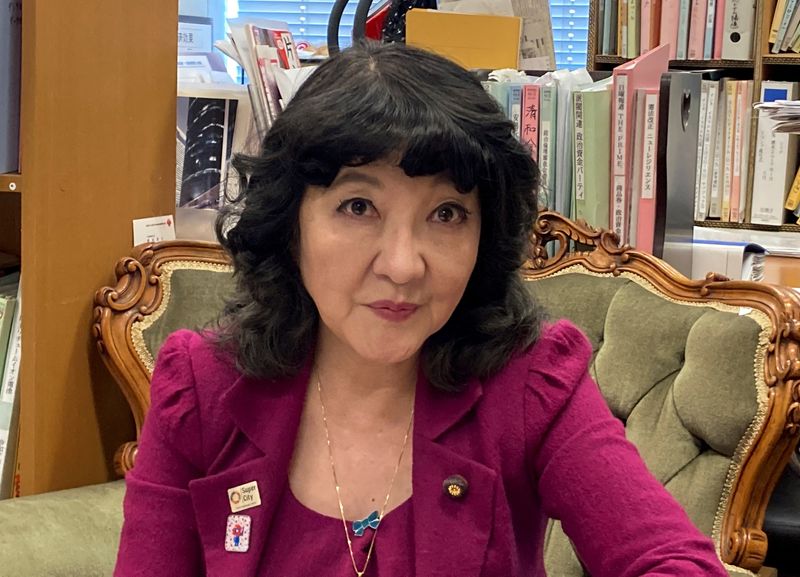By Leika Kihara and Makiko Yamazaki
TOKYO (Reuters) -The possible appointment of Satsuki Katayama as Japan’s next finance minister could give markets cause to rethink pushing the yen too low but might also help the country’s new leader find fresh ways to fund bold economic stimulus plans.
Japan’s next likely prime minister Sanae Takaichi has finalised a plan to appoint Katayama as finance minister, local media reported on Tuesday, which would make her the first woman to hold the role. The report briefly pushed the dollar to around 150.50 yen, before recouping some losses.
In an interview with Reuters in March, Katayama, a 66-year-old veteran upper house lawmaker and former finance minister bureaucrat, said Japan’s economic fundamentals suggest the yen’s real value is closer to 120-130 per dollar.
Those comments were made when the yen’s slide to multi-decade lows around 150 to the dollar on market expectations that the Bank of Japan will go slow on monetary tightening. The yen is currently trading around 151 per dollar.
“Given her past remarks, it seems Katayama favours reversing a weak yen. Markets may have seen that as similar to the views of U.S. Treasury Secretary Scott Bessent,” said Akira Moroga, chief market strategist at Aozora Bank.
Katayama declined to comment on Tuesday.
Takaichi is set to be voted in as Japan’s first female prime minister on Tuesday, marking a symbolic shattering of the glass ceiling in a country where men still wield most power.
OUTSPOKEN, DECISIVE, MINISTRY INSIDER
A former finance ministry bureaucrat well-versed in fiscal affairs, Katayama has a knack for currency diplomacy, and befriends former and incumbent executives at the ministry overseeing exchange-rate policy.
She is known for being outspoken and her punchy decision-making, which contrasts with incumbent finance minister Katsunobu Kato, who rarely goes off script and keeps a low profile.
In the March interview, Katayama had said U.S. President Donald Trump’s administration did not want excessive yen weakness versus the dollar.
Indeed, Bessent said last week the yen would find its own level if the central bank follows “proper monetary policy” in his latest swipe at the slow pace of BOJ rate hikes.
The appointment of Katayama would come at a time of rising living costs, blamed in part on higher import prices caused by a weak yen. Those factors have hurt households and the ruling party’s approval ratings.
As a former bureaucrat, Katayama knows well the inner workings of the finance ministry’s budget drafting.

